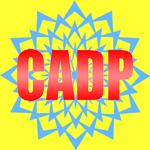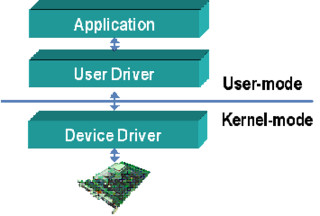Related Research Articles
In computer science, formal methods are mathematically rigorous techniques for the specification, development, analysis, and verification of software and hardware systems. The use of formal methods for software and hardware design is motivated by the expectation that, as in other engineering disciplines, performing appropriate mathematical analysis can contribute to the reliability and robustness of a design.
In the context of hardware and software systems, formal verification is the act of proving or disproving the correctness of a system with respect to a certain formal specification or property, using formal methods of mathematics. Formal verification is a key incentive for formal specification of systems, and is at the core of formal methods. It represents an important dimension of analysis and verification in electronic design automation and is one approach to software verification. The use of formal verification enables the highest Evaluation Assurance Level (EAL7) in the framework of common criteria for computer security certification.

In computer science, model checking or property checking is a method for checking whether a finite-state model of a system meets a given specification. This is typically associated with hardware or software systems, where the specification contains liveness requirements as well as safety requirements.
A hybrid system is a dynamical system that exhibits both continuous and discrete dynamic behavior – a system that can both flow and jump. Often, the term "hybrid dynamical system" is used, to distinguish over hybrid systems such as those that combine neural nets and fuzzy logic, or electrical and mechanical drivelines. A hybrid system has the benefit of encompassing a larger class of systems within its structure, allowing for more flexibility in modeling dynamic phenomena.
SIGPLAN is the Association for Computing Machinery's Special Interest Group on programming languages.

Model-based testing is an application of model-based design for designing and optionally also executing artifacts to perform software testing or system testing. Models can be used to represent the desired behavior of a system under test (SUT), or to represent testing strategies and a test environment. The picture on the right depicts the former approach.
Domain-specific modeling (DSM) is a software engineering methodology for designing and developing systems, such as computer software. It involves systematic use of a domain-specific language to represent the various facets of a system.
The SLAM project, which was started in 1999 by Thomas Ball and Sriram Rajamani of Microsoft Research, aimed at verifying software safety properties using model checking techniques. It was implemented in OCaml, and has been used to find many bugs in Windows Device Drivers. It is distributed as part of the Microsoft Windows Driver Foundation development kit as the Static Driver Verifier (SDV). "SLAM originally was an acronym but we found it too cumbersome to explain. We now prefer to think of 'slamming' the bugs in a program." It initially stood for "software (specifications), programming languages, abstraction, and model checking". Note that Microsoft has since re-used SLAM to stand for "Social Location Annotation Mobile".
In computer science, an abstract state machine (ASM) is a state machine operating on states that are arbitrary data structures.
In computer science and mathematical logic, satisfiability modulo theories (SMT) is the problem of determining whether a mathematical formula is satisfiable. It generalizes the Boolean satisfiability problem (SAT) to more complex formulas involving real numbers, integers, and/or various data structures such as lists, arrays, bit vectors, and strings. The name is derived from the fact that these expressions are interpreted within ("modulo") a certain formal theory in first-order logic with equality. SMT solvers are tools that aim to solve the SMT problem for a practical subset of inputs. SMT solvers such as Z3 and cvc5 have been used as a building block for a wide range of applications across computer science, including in automated theorem proving, program analysis, program verification, and software testing.
In computer science, the International Conference on Computer-Aided Verification (CAV) is an annual academic conference on the theory and practice of computer-aided formal analysis of software and hardware systems, broadly known as formal methods. Among the important results originally published in CAV are techniques in model checking, such as Counterexample-Guided Abstraction Refinement (CEGAR) and partial order reduction. It is often ranked among the top conferences in computer science.

Joseph Sifakis is a Greek-French computer scientist. He received the 2007 Turing Award, along with Edmund M. Clarke and E. Allen Emerson, for his work on model checking.

CADP is a toolbox for the design of communication protocols and distributed systems. CADP is developed by the CONVECS team at INRIA Rhone-Alpes and connected to various complementary tools. CADP is maintained, regularly improved, and used in many industrial projects.

Device drivers are programs which allow software or higher-level computer programs to interact with a hardware device. These software components act as a link between the devices and the operating systems, communicating with each of these systems and executing commands. They provide an abstraction layer for the software above and also mediate the communication between the operating system kernel and the devices below.
Typestate analysis, sometimes called protocol analysis, is a form of program analysis employed in programming languages. It is most commonly applied to object-oriented languages. Typestates define valid sequences of operations that can be performed upon an instance of a given type. Typestates, as the name suggests, associate state information with variables of that type. This state information is used to determine at compile-time which operations are valid to be invoked upon an instance of the type. Operations performed on an object that would usually only be executed at run-time are performed upon the type state information which is modified to be compatible with the new state of the object.
CPAchecker is a framework and tool for formal software verification, and program analysis, of C programs. Some of its ideas and concepts, for example lazy abstraction, were inherited from the software model checker BLAST. CPAchecker is based on the idea of configurable program analysis which is a concept that allows expression of both model checking and program analysis with one formalism. When executed, CPAchecker performs a reachability analysis, i.e., it checks whether a certain state, which violates a given specification, can potentially be reached.
Design Space Exploration (DSE) refers to systematic analysis and pruning of unwanted design points based on parameters of interest. While the term DSE can apply to any kind of system, we refer to electronic and embedded system design in this article.
Helmut Veith was an Austrian computer scientist who worked on the areas of computer-aided verification, software engineering, computer security, and logic in computer science. He was a Professor of Informatics at the Vienna University of Technology, Austria.
In computer science and mathematical logic, Cooperating Validity Checker (CVC) is a family of satisfiability modulo theories (SMT) solvers. The latest major versions of CVC are CVC4 and CVC5 ; earlier versions include CVC, CVC Lite, and CVC3. Both CVC4 and cvc5 support the SMT-LIB and TPTP input formats for solving SMT problems, and the SyGuS-IF format for program synthesis. Both CVC4 and cvc5 can output proofs that can be independently checked in the LFSC format, cvc5 additionally supports the Alethe and Lean 4 formats. cvc5 has bindings for C++, Python, and Java.
In the context of computer science, the C Bounded Model Checker (CBMC) is a bounded model checker for C programs. It was the first such tool.
References
- ↑ "Files - BLAST - Open-Source Projects".
- ↑ Dirk Beyer (2012). "Competition on Software Verification (SV-COMP)" (PDF). Proceedings of the 18th International Conference on Tools and Algorithms for the Construction and of Analysis Systems. Springer-Verlag, Heidelberg.
- ↑ Dirk Beyer (2013). "Second Competition on Software Verification (Summary of SV-COMP 2013)" (PDF). Proceedings of the 19th International Conference on Tools and Algorithms for the Construction and of Analysis Systems. Springer-Verlag, Heidelberg.
- ↑ Dirk Beyer (2014). "Third Competition on Software Verification (Summary of SV-COMP 2014)" (PDF). Proceedings of the 20th International Conference on Tools and Algorithms for the Construction and of Analysis Systems. Springer-Verlag, Heidelberg.
- Notes
- Pavel Shved; Mikhail Mandrykin; Vadim Mutilin (2012). "Predicate Analysis with BLAST 2.7.". In Flanagan, Cormac; König, Barbara (eds.). Tools and Algorithms for the Construction and Analysis of Systems. Lecture Notes in Computer Science. Vol. 7214. Springer-Verlag. pp. 525–527. ISBN 978-3-642-28756-5.
- Beyer, Dirk; Henzinger, Thomas A.; Jhala, Ranjit; Majumdar, Rupak (2007). "The Software Model Checker Blast". International Journal on Software Tools for Technology Transfer. 9 (5–6): 505–525. doi:10.1007/s10009-007-0044-z. S2CID 1662778.
- Thomas A. Henzinger; Ranjit Jhala; Rupak Majumdar & Gregoire Sutre (2003). "Software Verification with Blast". In Ball, Thomas & Rajamani, Sriram K. (eds.). Proceedings of the 10th SPIN Workshop on Model Checking Software (SPIN 2003). Lecture Notes in Computer Science. Vol. 2648. Springer-Verlag. pp. 235–239. ISBN 3-540-40117-2.